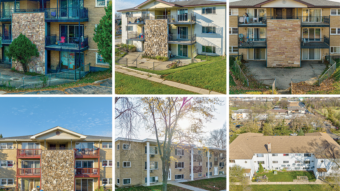When looking for cost-effective ways to add value to a property, there are three things to focus on. For maximum results, the key changes are those that can help you reduce operating costs, enhance the image of the property and communicate with tenants.
That’s according to Andy Bartucci, senior vice president, commercial management at Foresite Realty. He, along with dozen other experts, will be speaking at next week’s 15th Annual Chicagoland Asset, Property, Facility Management Conference. Registration is still open.
Property upgrades
To lessen a property’s bottom line, look to make simple and cheap changes, such as installing energy efficient light bulbs and other electrical devices to provide immediate savings on utility costs. More expensive options like motors can wait until the end of their lifecycle, but some local utilities offer discounts on energy efficient purchases, easing the pain of costlier capital expenditures.
Other money-saving measures include purchasing utilities off of the open market rather than from the default local supplier. Contracting for enhanced waste removal with expanded recycling—including options for expanded waste removal for special items such as electronics and batteries—will keep overall trash costs down while also helping the environment.
But for maximum impact with minimal capital outlay, the key thing to focus on isn’t the building’s infrastructure, but its people. Explaining how and why you are implementing certain strategies—and listening to feedback—will improve the relationship between tenants and owners/property managers and, ideally, strengthen retention.
“I would communicate these efforts to the tenants in multiple methods,” said Bartucci. “The most important value enhancement you can do is to be responsive to tenant requests.”
After mechanical upgrades, there are other expensive capital improvements that, properly implemented, convey to existing and prospective tenants that the property intends to work for them. These include amenities like community or tenant lounges with some recreational amenities, as well as fitness centers or vehicle charging stations. Some of these may even be monetized, though that depends on the market.
Tenant needs
Digital connectivity and cutting-edge technology are the must-haves of today for commercial tenants. Property owners should look to either partner with a co-working/flex office provider or offer their own similar space and services. This should include conference facilities in a variety of sizes with screens as well as some web-based services for presentations or real-time conferences.
As in years past, tenants are chiefly motivated by location and lower overall costs. A relatively newer trend, however, is lease flexibility.
“The business environment is changing very rapidly,” said Bartucci. “For small- to medium-sized office tenants, signing a long-term lease could be restrictive for their growth.”
The pace of change for technologic advancements and the shifting zeitgeist for how business is done quickens every year. For this reason, property managers looking to offer contemporary space and services cannot maintain the status quo as in prior years.
“Business today is very different from even a few years ago. Connecting to the web, mobile working and having flexible space and amenities are some ways to stay relevant,” Bartucci said. “Managers and building owners need to adapt new ways of doing deals and operating the properties.”
For example, leasing teams should learn as much as possible about the potential commercial tenants, understanding what their business needs are and working that into the deal. As those prerequisites will dictate the likelihood of a tenant signing a lease, line items such as term length, lower up-front cost and the ability to increase or decreases in size should be addressed.
“I would consider fixed total rent increase versus triple net leases,” said Bartucci. “If this is important to a tenant, then the tenant knows their annual space costs each year.”
With a triple net lease, the tenant receives notice about what their rents will be for the current year, creating difficulty in projecting expenses. This shifts the risk burden to the owner, but to remain an option for tenants it should be something to consider.
The 15th Annual Chicagoland Asset, Property, Facility Management Conference will be held on August 22 at the Drake Hotel in Oak Brook, Illinois. You can register now.



